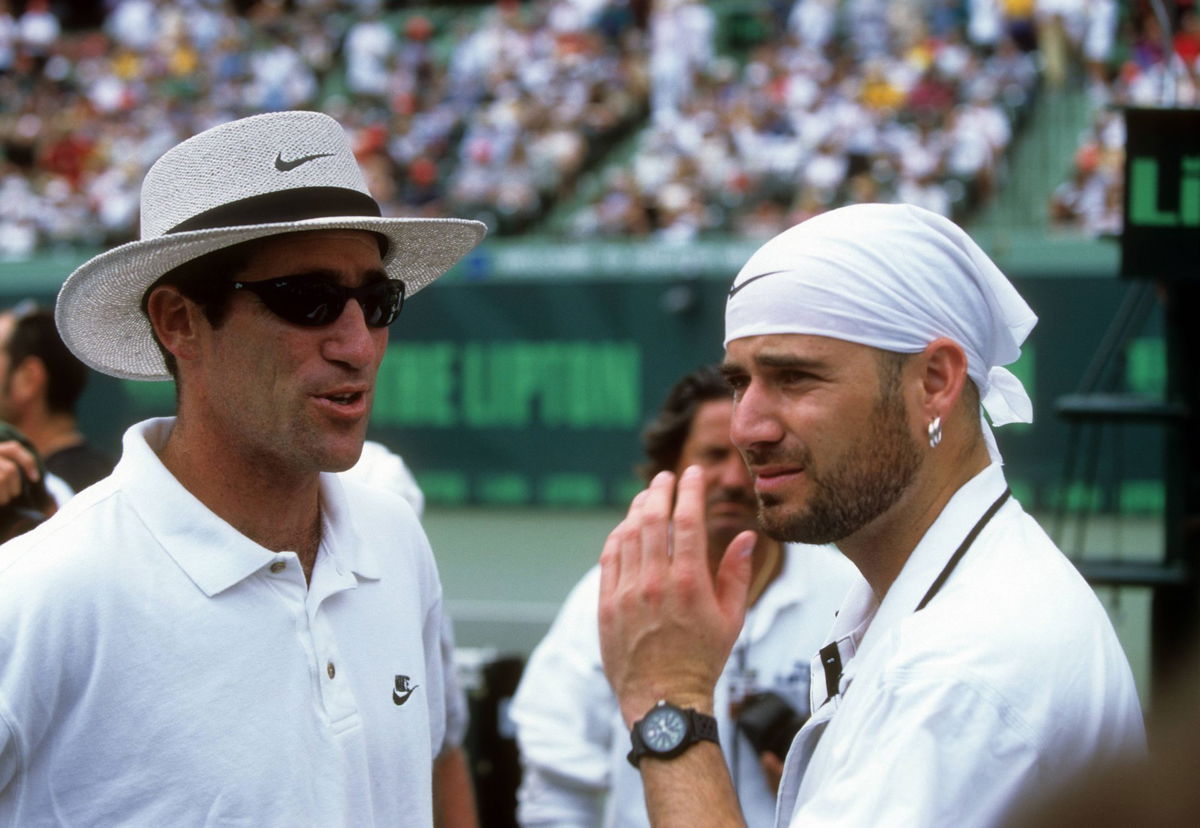

Between “feeling cheated” at the French Open in June and opening the floodgates in the US Open Semifinals against Boris Becker in September, Andre Agassi-Brad Gilbert duo were “winning ugly!” This was 1995, the Summer of Revenge as the duo called it, and a battered Agassi made it to the US Open finals after four title wins and a 26-match winning streak.
Watch What’s Trending Now!
That morning on the finals day, Agassi woke up with a torn cartilage underneath the ribs to face Pete Sampras 9 hours later. The final loss impaired Agassi to the degree that he lost his fighting spirit… Not just for a year, but a far longer time till 1998. Not even the fact that he would get to keep his World No. 1 rank irrespective of whether he loses or wins could console the then-26-year-old. Echoes of his losing will could be heard from miles away as documented in his autobiography, Open, “I’m 26-1, and I’d give up all those wins for this one.
“All that work and anger and winning and training and hoping and sweating, and it leads to the same empty disappointed feeling. No matter how much you win, if you’re not the last one to win, you’re a loser. And in the end I always lose, because there is always Pete. As always, Pete.”
ADVERTISEMENT
Two decades on, the 62-year-old tennis coach Gilbert, now currently a part of Coco Gauff‘s team, appeared on the Fail Better with David Duchovny podcast, where he revisited the most brutal experiences of his career. He was immediately taken back to the 1995 US Open where Pete Sampras won by defeating reigning winner Andre Agassi 6-4, 6-3, 4-6, 7-5. He stated,
“I mean, but I can give you a few of them that just jump out right away. When I was coaching Andre – two brutal ones, the ’95 US Open – he had won 26 consecutive matches, had the most amazing summer, and then goes out and just he was a little bit flat in that morning, you know, playing Pete Sampras in the finals of the ’95 Open.
“I could tell – lost that match seven, five and a fourth. I felt like someone had taken a knife and stabbed me. Then, one other one.”
ADVERTISEMENT
ADVERTISEMENT
In addition, he also recalled the other brutal match he witnessed with Agassi, in the 2001 US Open quarterfinal once again against Sampras. While the American coach clearly acknowledged the fact that even though, “Andre at that moment was the better player,” at that time, the Sampras’s form was unimaginable.
ADVERTISEMENT
Further, he emphasized the fact that it was brutal and quite heartbreaking for the 8-time Grand Slam champion himself and as a coach for Gilbert too. “Once again, Pete played an unbelievable match. No breaks the entire match and it came to the smallest margins. I just felt like if he, after that one, I was just gutted as I ever was in any match. I just felt heartbroken for Andre, and it came down to a few points and I still think about that match. It’s like you know, it still gets me,” said Gilbert.
However, there are other memories attached to their partnership. In the same way, did you know that during the US Open in 1994, Agassi’s coach Brad Gilbert vowed to shave his body if the American achieved victory in the tournament?
ADVERTISEMENT
When Andre Agassi’s ex-coach put up a challenge for the American
The former world number one tennis player once stated that his then-coach, Gilbert, was so excited about him winning the US Open that he planned to shave his body if that happened. In his autobiography, he discussed this episode and stressed how, in 1994, the 62-year-old tennis teacher had wanted him to be unseeded.
“Going into the 1994 U.S. Open, I’m number twenty, therefore unseeded. No unseeded player has won the U.S. Open since the 1960s. Brad likes it. He says he wants me unseeded. He wants me to be the joker in the deck. You’ll play someone tough in the early rounds, he says, and if you beat them, you’ll win this tournament,” Agassi wrote.
Top Stories
Aryna Sabalenka Braces for Punishment as “Insane” Schedule Debate Echoes Serena Williams’ Era
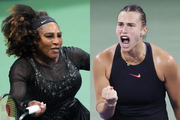
Madison Keys Battles Diana Shnaider Amid Injury Scare as Aryna Sabalenka Clash Awaits
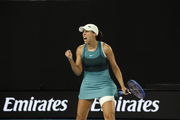
Did Karolina Muchova Really Date Australian Actress Rebel Wilson? Here’s What We Know About Their Rumored Relationship
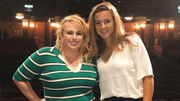
Wildcard Entrant Leaves Tennis World Shocked With Bizarre 20 Double Fault Gameplay
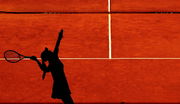
Qinwen Zheng Suffers Early 2026 Setback With Shock Australian Open Withdrawal
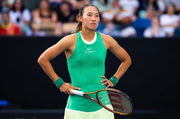
Agassi said, “He’s sure of it. So sure, he vows to shave his entire body when I do. I’m always telling Brad he’s too hairy. He makes Sasquatch look like Kojak. He needs to trim that chest, those arms—and those eyebrows. Either trim them or name them. Trust me, I tell him, you shave that chest and you’ll feel things you’ve never felt before.”
ADVERTISEMENT
Even so, he defied his coach’s preconceived notions about him and went on to win the US Open in 1994. Still, what are your thoughts about the traumatic event that accompanies the position of coach? Tell us in the space provided for comments below.
ADVERTISEMENT
ADVERTISEMENT
ADVERTISEMENT

